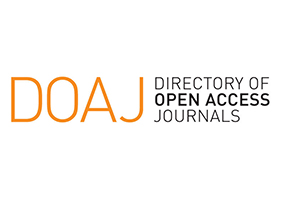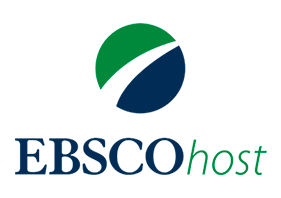Implication of Reverse Logistics in the Sustainability of the Textile Sector: A Systematic Review
Keywords:
Sustainable development, textile industry, reverse logistics, circular economy, environmentAbstract
Reverse logistics is a process within the supply chain that mediates a solution to prevent the deterioration of the environment; as well as the use of production processes and market supply in the face of excess inventory, returns, reconditioning, among others. In order that they can be reused to generate value again before an adequate management of planning, execution and control. This research aims to review the relationship between reverse logistics and the environmental impact it has on the textile industry and how, with the implementation of innovative practices, they allow recovering or extending the value of the product or material. The systematic review is developed with the Tranfield methodology with 25 documents selected from databases (Scopus and Web of Science), where the different reverse logistics approaches (Strategic, operational and support) are analyzed using STROBE declaration sheets. As a result, the synthesis of employee practices in this industry was obtained, which provides a reference and practice guide to be incorporated into the Colombian textile industry.Downloads
References
Abreu, M. C. S. de, Ferreira, F. N. H., Proença, J. F., y Ceglia, D. (2020). Collaboration in achieving sustainable solutions in the textile industry. Journal of Business & Industrial Marketing, 36(9), 1614-1626. https://doi.org/10.1108/JBIM-01-2020-0041
Araque, Y. D. V. C., Córdoba, V. H. M., & de Meriño, C. Y. M. (2018). Emprendimiento sostenible: una opción para el crecimiento local. I+ D Revista de Investigaciones, 11(1), 105-116.
Arango Betancur, L., Rojas Ladino, L. D., y Silva Álvarez, E. F. (2019). Diseño de un modelo de logística inversa para empresas del sector industrial en la ciudad de Pereira, Risaralda [Universidad Libre Seccional Pereira]. http://repository.unilibre.edu.co/handle/10901/17157
Ashby, A. (2018). Developing closed loop supply chains for environmental sustainability: Insights from a UK clothing case study. Journal of Manufacturing Technology Management, 29(4), 699-722. https://doi.org/10.1108/JMTM-12-2016-0175
Asociación Nacional de Empresarios de Colombia. (2019, marzo 20). Pronunciamiento. https://www.andi.com.co/Home/Noticia/6351-pronunciamiento-
Cai, Y.-J., y Choi, T.-M. (2020). A United Nations’ Sustainable Development Goals perspective for sustainable textile and apparel supply chain management. Transportation Research Part E: Logistics and Transportation Review, 141, 102010. https://doi.org/10.1016/j.tre.2020.102010
Camacho-Otero, J., Pettersen, I. N., y Boks, C. (2020). Consumer engagement in the circular economy: Exploring clothes swapping in emerging economies from a social practice perspective. Sustainable Development, 28(1), 279-293. https://doi.org/10.1002/sd.2002
Carrera Gallissà, E. (2017). Los retos sostenibilistas del sector textil. https://upcommons.upc.edu/handle/2117/103614
Cerem International Business School. (2019, abril 24). Los residuos textiles necesitan ser reciclados de manera adecuada. https://www.cerem.es/blog/la-segunda-vida-de-los-textiles
Chatha, S. A. S., Asgher, M., y Iqbal, H. M. N. (2017). Enzyme-based solutions for textile processing and dye contaminant biodegradation—A review. Environmental Science and Pollution Research, 24(16), 14005-14018. https://doi.org/10.1007/s11356-017-8998-1
Chi, T. (2011). Building a sustainable supply chain: An analysis of corporate social responsibility (CSR) practices in the Chinese textile and apparel industry. The Journal of The Textile Institute, 102(10), 837-848. https://doi.org/10.1080/00405000.2010.524361
Curwen, L. G., Park, J., y Sarkar, A. K. (2013). Challenges and Solutions of Sustainable Apparel Product Development: A Case Study of Eileen Fisher. Clothing and Textiles Research Journal, 31(1), 32-47. https://doi.org/10.1177/0887302X12472724
Elango, B., y Pattnaik, C. (2007). Building capabilities for international operations through networks: A study of Indian firms. Journal of International Business Studies, 38(4), 541-555. https://doi.org/10.1057/palgrave.jibs.8400280
Fernández López, M. (2020). La economía circular en el sector textil.¿La tendencia de “Fast Fashion” o “Moda Rápida” en la industria textil actual es compatible con el modelo de economía circular? [Trabajo de grado, Universidad Pontifica Comillas]. https://repositorio.comillas.edu/xmlui/handle/11531/37923
Goworek, H., Oxborrow, L., Claxton, S., McLaren, A., Cooper, T., y Hill, H. (2020). Managing sustainability in the fashion business: Challenges in product development for clothing longevity in the UK. Journal of Business Research, 117, 629-641. https://doi.org/10.1016/j.jbusres.2018.07.021
Huerta Herrera, A. P., y Irrazabal-Carvajal, D. (2019). Análisis de la economía circular aplicada a la industria textil para la fabricación de textiles a partir de residuos textiles pre y post consumo [Tesis de grado, Universidad Católica San Pablo]. http://54.213.100.250/bitstream/20.500.12590/16384/1/HUERTA_HERRERA_ANA_TEX.pdf
Hutton, B., Catalá-López, F., y Moher, D. (2016). [The PRISMA statement extension for systematic reviews incorporating network meta-analysis: PRISMA-NMA]. Medicina Clinica, 147(6), 262-266. https://doi.org/10.1016/j.medcli.2016.02.025
Keith, S., y Silies, M. (2015). New life luxury: Upcycled Scottish heritage textiles. International Journal of Retail y Distribution Management, 43(10/11), 1051-1064. https://doi.org/10.1108/IJRDM-07-2014-0095
Köksal, D., Strähle, J., Müller, M., y Freise, M. (2017). Social Sustainable Supply Chain Management in the Textile and Apparel Industry—A Literature Review. Sustainability, 9(1), 100. https://doi.org/10.3390/su9010100
Li, Y., Barrueta Pinto, M. C., y Diabat, A. (2020). Analyzing the critical success factor of CSR for the Chinese textile industry. Journal of Cleaner Production, 260, 120878. https://doi.org/10.1016/j.jclepro.2020.120878
Linares-Espinós, E., Hernández, V., Domínguez-Escrig, J. L., Fernández-Pello, S., Hevia, V., Mayor, J., Padilla-Fernández, B., y Ribal, M. J. (2018). Metodología de una revisión sistemática. Actas Urológicas Españolas, 42(8), 499-506. https://doi.org/10.1016/j.acuro.2018.01.010
Martínez-Barreiro, A. (2008). La moda rápida: Ultima transformación del sistema de la moda. Mundos sociais: saberes e prácticas, 2008, ISBN 978-972-95945-4-0, pág. 25, 25. https://dialnet.unirioja.es/servlet/articulo?codigo=4536782
Ministerio de Ambiente y Desarrollo Sostenible. (2017). El país sigue avanzando en la gestión integral de residuos sólidos | Ministerio de Ambiente y Desarrollo Sostenible. https://archivo.minambiente.gov.co/index.php/noticias-minambiente/3204-el-pais-sigue-avanzando-en-la-gestion-integral-de-residuos-solidos
Moktadir, Md. A., Kumar, A., Ali, S. M., Paul, S. K., Sultana, R., y Rezaei, J. (2020). Critical success factors for a circular economy: Implications for business strategy and the environment. Business Strategy and the Environment, 29(8), 3611-3635. https://doi.org/10.1002/bse.2600
Moreira, N., de Santa-Eulalia, L. A., Aït-Kadi, D., Wood–Harper, T., y Wang, Y. (2015). A conceptual framework to develop green textiles in the aeronautic completion industry: A case study in a large manufacturing company. Journal of Cleaner Production, 105, 371-388. https://doi.org/10.1016/j.jclepro.2014.09.056
Pinheiro, E., de Francisco, A. C., Piekarski, C. M., y de Souza, J. T. (2019). How to identify opportunities for improvement in the use of reverse logistics in clothing industries? A case study in a Brazilian cluster. Journal of Cleaner Production, 210, 612-619. https://doi.org/10.1016/j.jclepro.2018.11.024
Scimago, J., y Country, R. (2020). Journal of Cleaner Production. SJR. https://www.scimagojr.com/journalsearch.php?q=19167&tip=sid&clean=0
Senso Ruiz, J. A. (2021). Módulo 1 1.3 Las ecuaciones de búsqueda y los operadores. https://abierta.ugr.es/pluginfile.php/150216/mod_resource/content/6/1.3_Senso.pdf
Shubham, Charan, P., y Murty, L. S. (2018). Institutional pressure and the implementation of corporate environment practices: Examining the mediating role of absorptive capacity. Journal of Knowledge Management, 22(7), 1591-1613. https://doi.org/10.1108/JKM-12-2016-0531
Singh, J., Sung, K., Cooper, T., West, K., y Mont, O. (2019). Challenges and opportunities for scaling up upcycling businesses – The case of textile and wood upcycling businesses in the UK. Resources, Conservation and Recycling, 150, 104439. https://doi.org/10.1016/j.resconrec.2019.104439
Sosa, N., Garciandía, G., Valdés, M., y Rosquete, R. (2017). Interrelación entre gestión de innovación y formación continua del personal como procesos gerenciales. Retos de La Dirección, 11(2). http://scielo.sld.cu/scielo.php?script=sci_arttext&pid=S2306-91552017000200006
Thorlakson, T., de Zegher, J. F., y Lambin, E. F. (2018). Companies’ contribution to sustainability through global supply chains. Proceedings of the National Academy of Sciences, 115(9), 2072-2077. https://doi.org/10.1073/pnas.1716695115
Tranfield, D., Denyer, D., y Smart, P. (2003). Towards a Methodology for Developing Evidence-Informed Management Knowledge by Means of Systematic Review. British Journal of Management, 14(3), 207-222. https://doi.org/10.1111/1467-8551.00375
Tunn, V. S. C., Bocken, N. M. P., van den Hende, E. A., y Schoormans, J. P. L. (2019). Business models for sustainable consumption in the circular economy: An expert study. Journal of Cleaner Production, 212, 324-333. https://doi.org/10.1016/j.jclepro.2018.11.290
Universidad de Nottingham Trent. (s.f.). Tim Cooper. https://www.ntu.ac.uk/staff-profiles/architecture-design-built-environment/tim-cooper
von Elm, E., Altman, D. G., Egger, M., Pocock, S. J., Gøtzsche, P. C., y Vandenbroucke, J. P. (2008). Declaración de la Iniciativa STROBE (Strengthening the Reporting of Observational studies in Epidemiology): Directrices para la comunicación de estudios observacionales. Gaceta Sanitaria, 22(2), 144-150. https://scielo.isciii.es/scielo.php?script=sci_arttext&pid=S0213-91112008000200011
Downloads
Published
Versions
- 2023-09-19 (2)
- 2022-12-31 (1)












